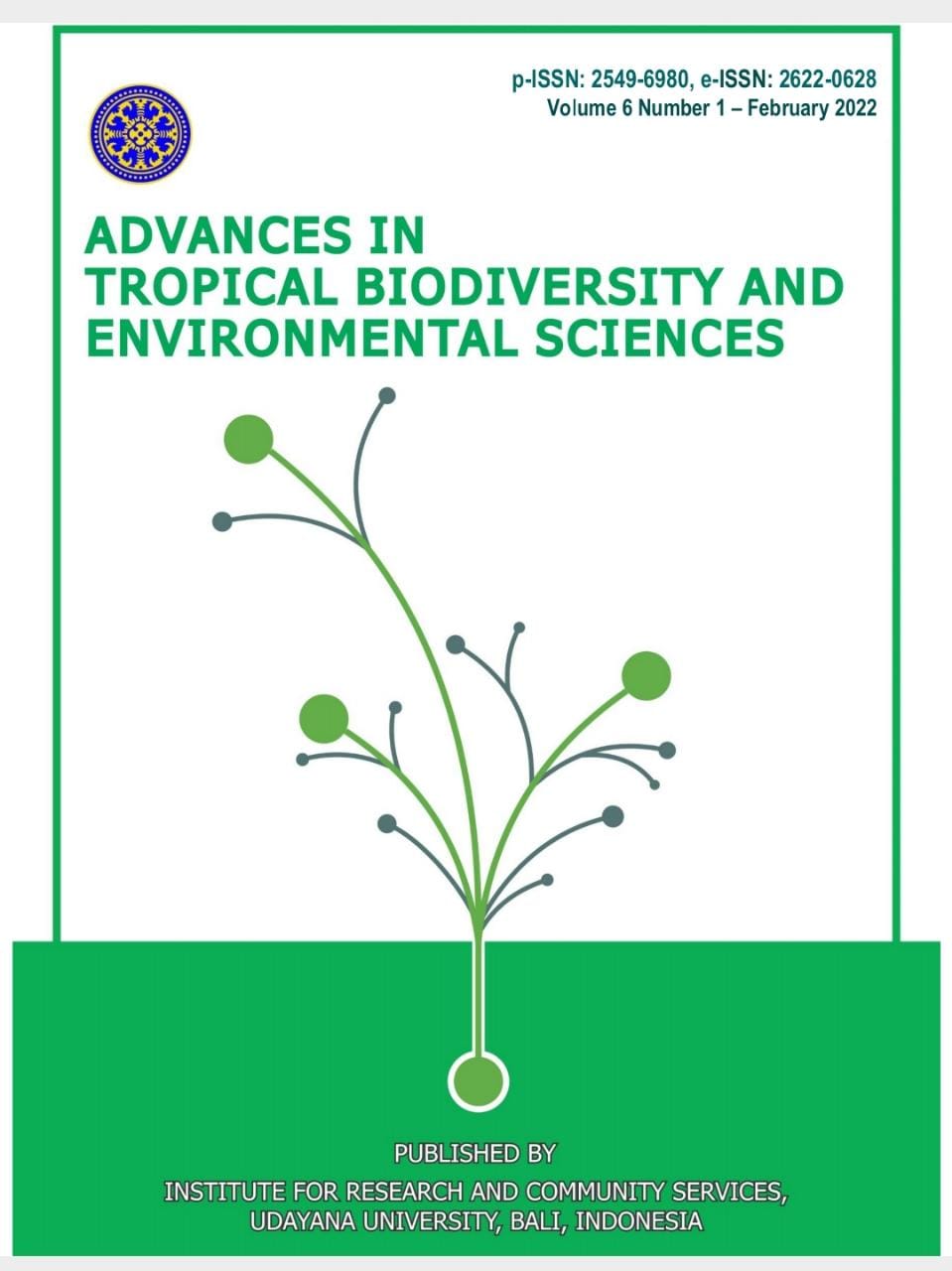Study Of Macrozoobentos Diversity In The Secondary Flow Of The Bengawan Solo River
Abstract
Macrozoobenthos are invertebrate animals that live on the bottom of the waters which are often used as an estimator of the imbalance in the physical, chemical, and biological environment of the waters. Polluted waters will affect the survival of macrozoobenthos organisms because they are easily affected by the presence of physical and chemical pollutants. This study aims to determine the diversity, abundance of macrozoobenthos as well as diversity index, evenness index, dominance index, and density index which can be used as a reference for determining the water quality of the Bengawan Solo River secondary flow in Tunjungmekar Village, Kalitengah District, Lamongan Regency. Researchers found 6 classes of gastropods, 1 class of bivalves, 1 class of crustaceans, 1 class of malacostraca, 1 class of clitella, from 10 types of macrozoobenthos. It is known that the diversity values ??of stations 1,2,3 and 4 are included in the low category, this is because the value of each station is <1. The evenness value of stations 1,2,3 and 4 is included in the low category because each station is <1. From the results of the dominance analysis, the highest value is at station 1 with a total of 0.59 because there are freshwater snail species that dominate at station 1. The highest value density is at station 1 with a value of (40.49) while the lowest value is at station 4 with a value of (2, 83). The highest density value is at station 1 with a value of (40.49) while the lowest value is at station 4 with a value of (2.83). The result water quality temperatures between 28.5-300C, brightness ranges from 19-21 cm, depth ranges from 0.5 - 2 m, the salinity of 0‰, pH from 8.5-8.8, dissolved oxygen (DO) ranged from 2.2 to 3.3 mg/L, nitrite ranged from 0.09-0.20 mg/l. The results of water quality measurements are still in good condition for the life of aquatic biota.
Downloads
References
[2] Fithrina M, 2009. Keadaan Fisik Daerah Aliran Sungai Bengawan Solo.
[3] Odum, E. P. 1993. Dasar-dasar Ekologi. Edisi Ketiga. Yogyakarta: Universitas Gajah Mada Press.
[4] Hardjosuwarno, S. 1990. Ekologi Tumbuhan Jilid 2. Yogyakarta: Fakultas Biologi Universitas Gajah Mada.
[5] Brower, J., J. Zar, C.V. Ende, K. Kane, 1990. Field and laboratory methods for general ecology. Edisi ke-3. America: Wm. C. Brown Publishers.
[6] USDA, 2012. National Agriculture Statistic Servis
[7] Nangin, SR, Langoya, ML & Katilia, DY, 2015, Makrozoobentos Sebagai Indikator Biologi Dalam Menentukan Kualitas Air Sungai Suhuyon Sulawesi Utara, Jurnal MIPA UNSRAT ONLINE, 4 (2): 165-168.
[8] Barnes (1999) dalam Suci Iswanti, Unnes Journal of Life Science, “Distribusi dan Keanekaragaman Jenis Makrozoobentos di Sungai Damar Desa Weleri Kendal. (1)2-2012., hlm. 90
[9] Arman Harahap. 2019. Peranan Makrozoobentos Sebagai Bioindikator Kualitas Air Di Sungai Bilah Labuhan Batu. Disertasi. Program Pascasarjana Fakultas Matematika Dan Ilmu Pengetahuan Alam Universitas Sumatera Utara Medan.
[10] Wilhm, J. F. (1975). Biological Indicator of Pollution. London: Blackwell Scientific Publications.
[11] Purnama, P. R., N. W. M. E. Agustin, dan M. Affandi. 2011. Diversitas Gastropoda di Sungai Sukamade, Taman Nasional Meru Betiri, Jawa Timur. Universitas Airlangga.Surabaya
[12] Soegianto, A. 1994. Ekologi Kuantitatif. Metode Analisis Populasi dan Komunitas. Penerbit Usaha Nasional.Surabaya. Indonesia
[13] Hanif, 2011. Kajian Zat Hara Fosfat, Nitrit, Nitrat dan Silikat di Perairan Kepulauan Matasiri, Kalimantan Selatan. ILMU KELAUTAN: Indonesian Journal of Marine Sciences, 16 (3), 135-142
[14] Damayanti. 2019. ANALISIS PELAKSANAAN PRAKTIKUM KIMIA. Jurnal Pendidikan Kimia UNDIKSHA.Vol.3 No 2.
[15] Yasir, AA, 2017, Struktur Komunitas Makrozoobenthos Pada Lokasi Dengan Aktivitas Berbeda di Perairan Sungai Tallo Kota Makassar, Skripsi Universitas Hasanuddin Makasar













